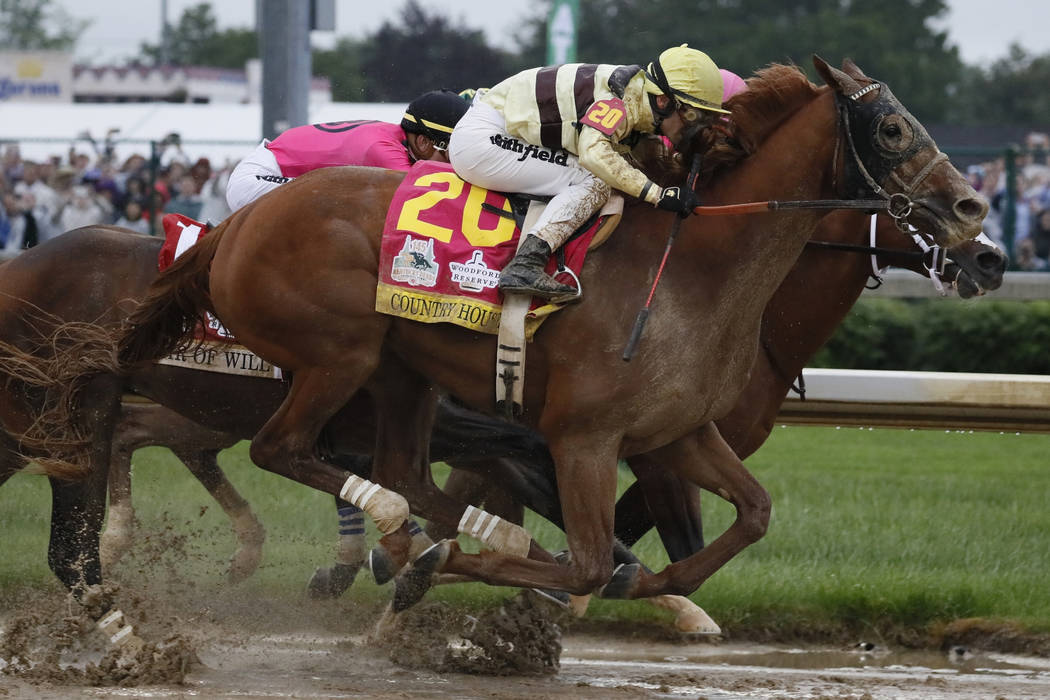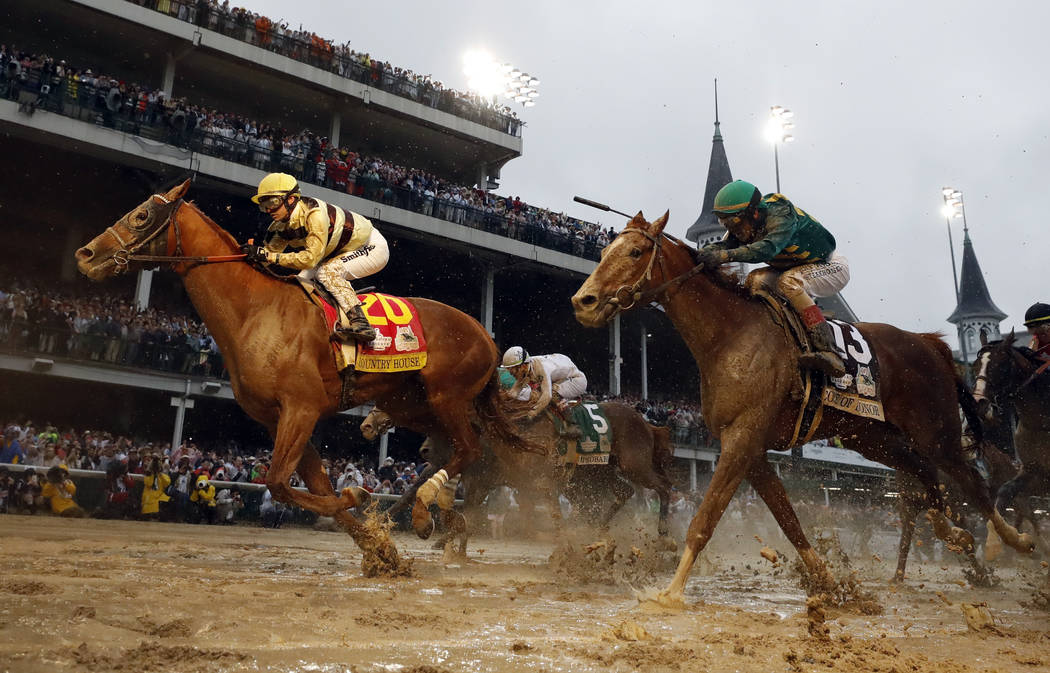Reno bettor’s $609K win on Kentucky Derby capped at $35K
When is winning $35,000 on a horse race considered a bad beat? When the bettor thought he had won $609,000.
That’s what happened to Steve Friedlander, a Reno ophthalmologist, who hit a $40 trifecta on the Kentucky Derby that paid $459,024 and a $100 exacta that paid $150,480. Or so he thought.
The doctor was unable to collect the huge payouts because he placed the bets at a non-pari-mutuel location — the William Hill race and sportsbook inside Reno casino Tamarack Junction — that caps the exacta payout odds at 150-1 and the trifecta odds at 500-1.
Those caps lowered his $40 trifecta payout to $20,000 and his $100 exacta payout to $15,000.
“That’s more than I’ve ever won on any sports bet,” said Friedlander, 53. “But the way it went down, it feels like a huge loss.”
A self-described recreational sports bettor who has played in the World Series of Poker, Friedlander said the only time he bets on horse racing is in the Kentucky Derby.
He was headed to the south side of Reno on May 4, Derby Day, for his son Justin’s high school track meet in Carson City when he stopped at Tamarack Junction to place his bets.
He bet a $100 exacta box of the 8, 13, 16 and 20 horses that cost $1,200, and a $40 trifecta box of 8, 13, 16 and 20 that cost $960. To win the exacta box, Friedlander needed any of his four horses to finish first and second. To win the trifecta box, he needed any of the four horses to finish first, second and third.
Watching the race at home, Friedlander thought he had lost his bets when the 7 horse, Maximum Security, crossed the finish line first. But when the favored colt was disqualified for interference after a 22-minute inquiry and the results were reset, Friedlander realized he had hit both bets and began to celebrate.
Country House (20), a 65-1 long shot he played in honor of his fiancee — Monica House — was declared the winner. Code of Honor (13) was second and Tacitus (8) third.
When Friedlander went to cash his tickets two hours later, a writer told him there’s a cap on exotic wagers and pointed to a placard on the wall that Friedlander hadn’t noticed. It read “This William Hill Race and Sports Book is a NON PARI-MUTUEL LOCATION” and referred bettors to the house rules regarding payout odds limits.
Friedlander’s heart sank.
“I was pretty sick,” he said. “It’s one of those things where I watched the race and thought I won all this money, yet I thought ‘this is too good to be true.’ And I went down there and ‘yeah, that’s right.’”
Had Friedlander placed his bet at a pari-mutuel location — where all wagers are placed in a pool and gamblers bet against one another rather than against the house — he would have been paid in full.
“It’s somewhat ironic how the story goes, because if my son’s track meet was on the north side of town, I almost certainly would have stopped at Grand Sierra, where William Hill has pari-mutuel,” he said.
William Hill declined comment but said in a statement:
“Because of the requirements of the gaming regulations, there are significant costs involved to offer pari-mutuel wagering in Nevada. Unfortunately, it doesn’t make economic sense to offer pari-mutuel wagering at all of our 115 Nevada locations.
“William Hill has 17 pari-mutuel locations in Nevada. At a number of additional William Hill locations, we offer booked wagering on the five major race days (Kentucky Derby, Preakness Stakes, Belmont Stakes, and Friday/Saturday of Breeders’ Cup) as a convenience to our customers in a manner consistent with the gaming regulations.
“At the locations where we book these select races, we pay official track prices, subject to certain caps that are prominently displayed. … The capping of booked race payouts has been industry standard for decades and allows race books to book without taking on unlimited liability, which no one would want to do.”
William Hill said Friedlander “has the right to appeal to the Nevada Gaming Control Board, but we are confident that we have fully complied with the relevant gaming regulations and had prominent signage alerting customers to the payoff caps.”
When Friedlander learned about the caps, he declined to cash his tickets and made an appeal to the Gaming Control Board, which told him they would make a decision within 45 days.
Friedlander said he hopes his story will serve as a cautionary tale as legal sports betting spreads across the country.
“I want new bettors to hear my story so they’re aware what house rules are,” he said. “And to make sure they do their research before they make a bet.”
Contact reporter Todd Dewey at tdewey@reviewjournal.com. Follow @tdewey33 on Twitter.
























